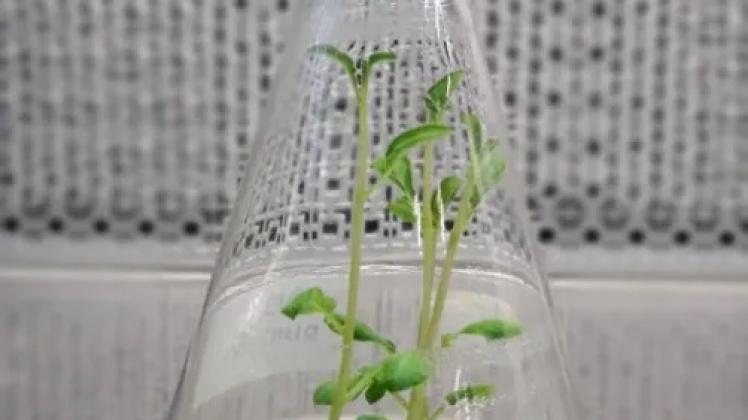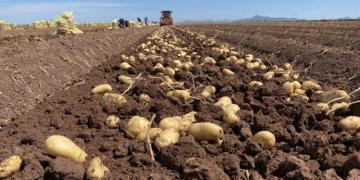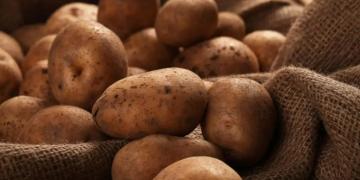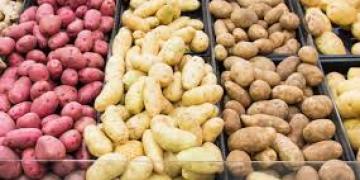Innovaciones: Chemotherapy, thermotherapy and cryotherapy: New Zealand scientists unveil innovative methods to eradicate PVS, PVA, and PVM viruses
A research study conducted by scientists in New Zealand has developed a reliable and efficient method for eradicating Potato Virus S (PVS), Potato Virus A (PVA), and Potato Virus M (PVM) from infected in vitro-grown potato shoots.

These viruses are known to significantly impact the yield and quality of potatoes, and current eradication methods have proven to be challenging.
The research study was published in the journal Frontiers in Plant Science here, titled “Eradication of Potato Virus S, Potato Virus A, and Potato Virus M From Infected in vitro-Grown Potato Shoots Using in vitro Therapies“.
Chemotherapy and cryotherapy
The researchers focused on in vitro-based techniques, which have been used in the past to eradicate viruses in potato plants. They found that combining two or more of these techniques can lead to more effective virus eradication than using a single technique.
The study identified specific procedures that resulted in high frequencies of virus-free potato plants. These procedures included the use of combined chemotherapy and cryotherapy, as well as the use of chemotherapy in combination with thermotherapy followed by cryotherapy. The researchers found that these methods were more efficient at producing virus-free potato plants than current reported methods.
In the research paper, the research team wrote: “We found that the combination of chemotherapy and cryotherapy (C + Cryo), or chemotherapy treatment prior to combining chemotherapy treatment with thermotherapy followed by cryotherapy {[C + (C + T)] + Cryo} resulted in high efficiency of PVS, PVA, and PVM eradication; 70–100% across the three potato cultivars tested.”
The development of efficient virus eradication methods is crucial for ensuring the production and supply of high-healthy planting material for the potato industry.
The researchers concluded: “Our study identified procedures that resulted in high frequencies of eradication of PVS, PVA, and PVM viruses from infected potato cultivars.
“The consistency of the results across three cultivars with single or mixed infections suggests that these procedures have great potential to assist the production and supply of virus-free planting materials for the potato industry.
“Furthermore, it might also be a valuable tool to support the global exchange of germplasm underpinning breeding activities.”
Addressing plant biosecurity of New Zealand
In New Zealand, more than 200 plant viruses and many of their invertebrate vectors have invaded the country in the last two centuries. These invaders are associated with introduced agricultural activities, and the number of plant viruses recorded in New Zealand has been steadily increasing.
Potato crops in New Zealand have also been affected by virus infections, leading to yield depression. PVS, which is a mechanically transmitted virus, has been found to be at a high incidence in these crops, and international research has shown that it can cause significant yield losses.
The development of this new virus eradication method can help address these challenges and contribute to the ongoing plant biosecurity of New Zealand. The researchers’ findings have the potential to benefit the potato industry not only in New Zealand but also in other countries where these viruses are a significant concern.
Note: This news story is a summarized interpretation of the research paper from Frontiers in Plant Science: https://www.frontiersin.org/articles/10.3389/fpls.2022.878733/full. The researchers involved in the study are from the New Zealand Institute for Plant and Food Research Limited, Food Industry Science Centre, Palmerston North, New Zealand and the Plant Health and Environment Laboratory, Ministry for Primary Industries, Auckland, New Zealand.
Source: Front. Plant Sci., 19 May 2022, Sec. Plant Biotechnology, Volume 13 – 2022 | https://doi.org/10.3389/fpls.2022.878733
Research team: Jean Carlos Bettoni, Liya Mathew, Ranjith Pathirana, Claudia Wiedow, Donald A. Hunter, Andrew McLachlan, Subuhi Khan, Joe Tang, and Jayanthi Nadarajan
Contact and additional information:
Jean Carlos Bettoni
jcbettoni@gmail.com
Photo:
In vitro potato plants. Courtesy Jean Carlos Bettoni
Fuente: https://www.potatonewstoday.com/2023/10/21/impact-of-in-vitro-therapies-new-zealand-scientists-unveil-innovative-methods-to-eradicate-pvs-pva-and-pvm-viruses/




